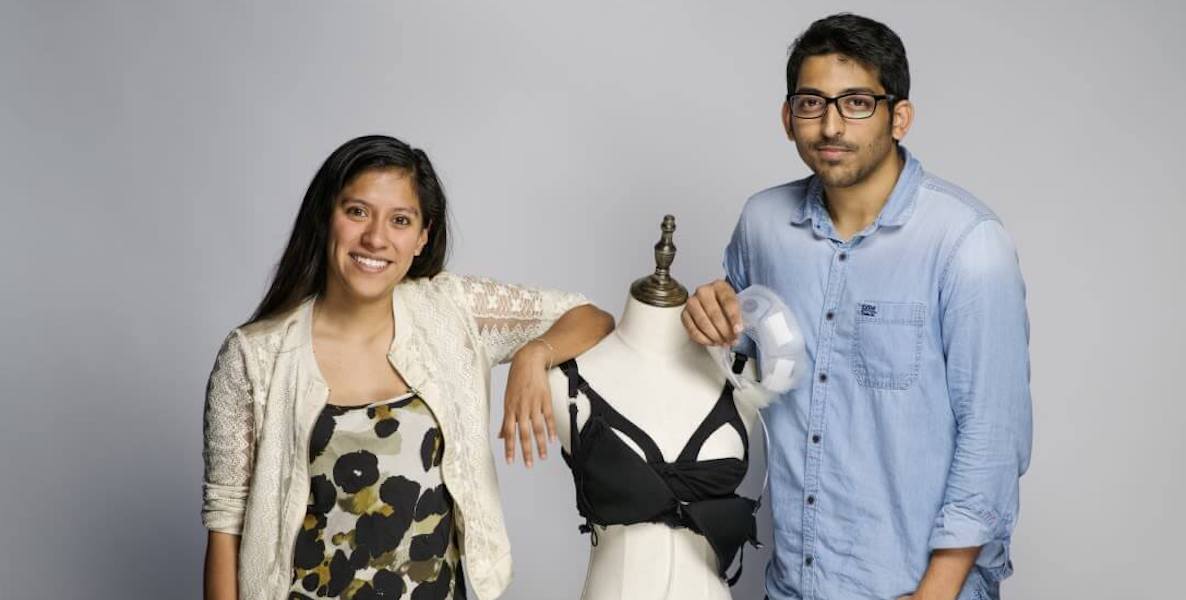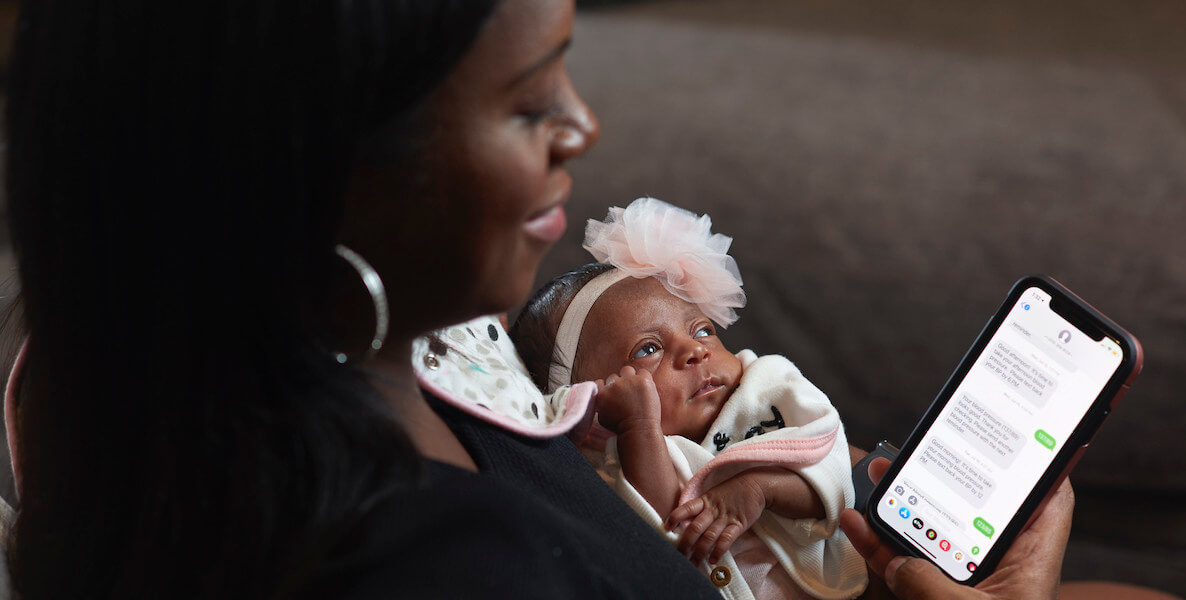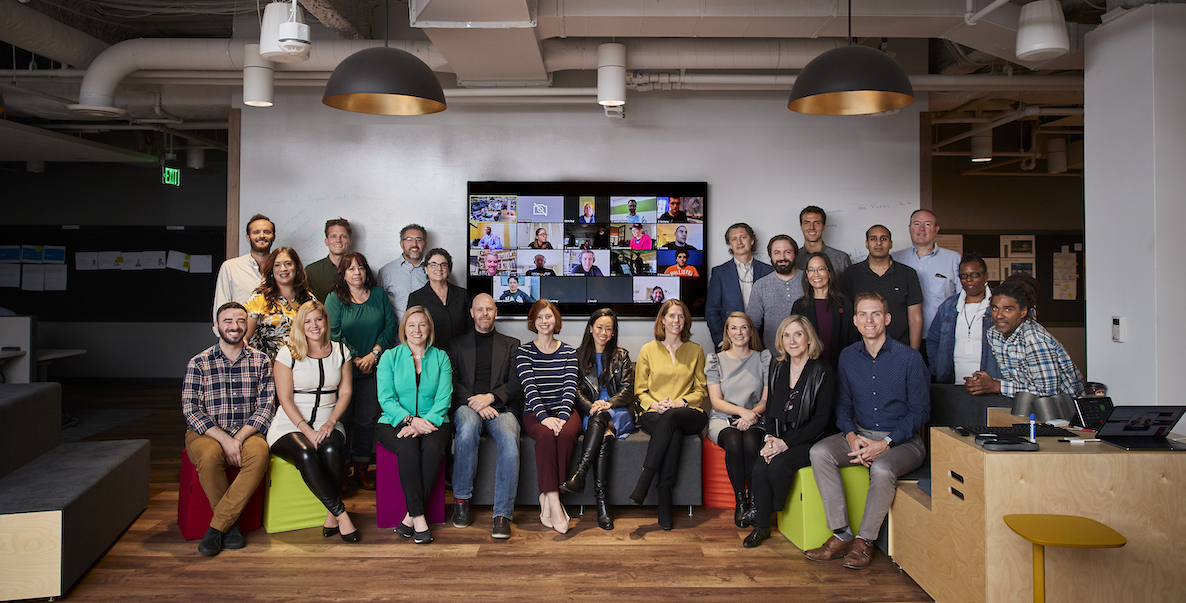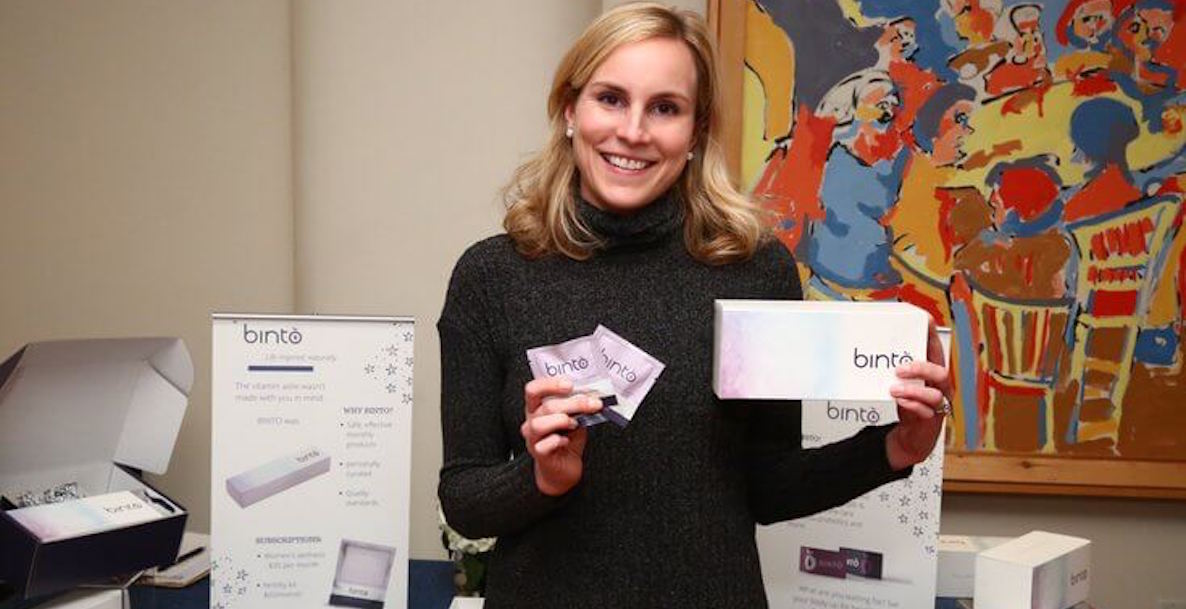In 2012, Sarah Ogden got a migraine, one of many she’d suffered throughout her life. This one, though, was different, worse. In fact, it has yet to end.
Over the course of several years—despite trying 40 different medications—she has never really been without symptoms, which in her case can include head pain, nausea, brain fog and sensitivity to light and sound. Eventually, she became so desperate that, in 2016, she travelled to Ohio for a three-week outpatient program run by the Cleveland Clinic aimed at teaching migraine sufferers proactive management strategies.
There, she learned how exercise, meditation, physical therapy, diet and other factors could help her manage her migraine pain. And by the end of the camp, she felt a marked improvement in her ability to enjoy life.
MORE ON HEALTH-RELATED SOLUTIONS
“Up until that point, it hadn’t really occurred to me that I could have a full life, and also have a migraine every day,” Ogden says. “It was a big turning point for me.”
But outside of the structure of the program, it was hard for Ogden to keep up with the lifestyle changes that had helped her manage her migraine pain. So she was particularly receptive when her doctor recommended Ctrl M Health, a startup that partners with the Jefferson Headache Center to help migraine patients make lifestyle changes to manage their pain and prevent attacks.
The Philly-based business, which launched last summer, does this with a three-pronged approach: through the creation of a doctor-vetted digital resource library; a line of supplements; and an app that helps people make lifestyle changes that can reduce the frequency and manage the pain of migraines.
Later this year, Ctrl M plans to seek its first round of funding from institutional investors so that it can continue improving its products and programs, with the hope of one day breaking into the $67 billion employee benefits market.
Business solutions to a familiar problem
Over 36 million Americans get migraines, according to data from the American Migraine Foundation. But currently, there are only around 700 certified headache specialists in the U.S. and only four percent of patients with diagnosed migraines receive care from a headache or pain specialist, according to data from the Migraine Research Foundation. As a result, most people with the condition are treated by a general physician, if they seek treatment from a doctor at all.
The effects of migraines are felt well beyond those who suffer from the ailment. Ctrl M notes that migraines cost U.S. businesses 113 million work days and more than $13 billion each year in lost productivity.
William Gadsden and Daniel Adelson founded Ctrl M Health in 2019 after being approached by the father of a patient at the Jefferson Headache Center who was interested in how the business world could step in to provide resources to migraine patients where the medical community was falling short.
“Up until that point, it hadn’t really occurred to me that I could have a full life, and also have a migraine every day,” Ogden says. “It was a big turning point for me.”
Both Adelson and Gadsden have backgrounds in business; Adelson invested in healthcare companies, and Gadsden worked in investment banking and management. The two men, who met through a mutual friend, were intrigued by the prospect of creating a business that helps fill a gap within the world of headache and migraine care.
Though neither of Ctrl M’s founders suffer from migraines, they became intrigued by the issue after they began meeting with migraine patients and doctors to understand their primary needs. Gadsden in particular was looking to move out of investment banking and into a business where he could make a meaningful difference in people’s lives. As he talked to migraine patients and heard stories about their struggles managing their pain and getting medical care, he realized this was an area where he could have a positive impact.
DO SOMETHING: Download Ctrl M
What you’ll get:
• A personalized wellness plan
• Over 50 interactive video and audio programs on migraine care
• 19 meditation audio guides
• Customized progress tracking and recommendations
• More than 100 activities designed for those who live with migraine
• A digital coach to help you on your journey
“The opportunity that Ctrl M represents was to take the clinical expertise, the research expertise, and the credibility of the Jefferson Headache Center and figure out how to deliver all of that to people who previously wouldn’t have had access to it,” Gadsden says.
Their solution, Ctrl M Health, makes physician-recommended treatments, like lifestyle changes and supplements, available to anyone through their app and store. The company also offers a free, online library of resources about migraines on their website.
Ctrl M Health’s three-prong approach to migraine relief
The business was developed in collaboration with the Jefferson Headache Center and the Center’s directors, Dr. William Young and Dr. Stephen D. Silberstein, who serve as co-medical directors of Ctrl M. Ctrl M currently has six employees.
“The heart of it is to make headache and migraine care accessible through the dissemination of information, giving people the tools to do their part in this world where doctors really don’t have adequate time to care for every patient,” Young says. “[Gadsden and Adelson] cut through all the problems and they made it happen.”
The first prong of Ctrl M, the Knowledge Portal, is a free library of digital resources to help inform people about headache and migraine. The portal was developed based on conversations Gadsden and Adelson had with people who experience migraines, who mentioned they often struggle to find reliable information.
“Frankly there’s a lot of bad information out there—a lot of pseudo medicine, a lot of rumors,” Gadsden said. All of the articles in Ctrl M Health’s library are physician-vetted and approved. They range from articles about different treatment methods and their effectiveness to educational resources about the basics of migraines and stories about people’s journeys with the condition.
The second prong is their supplement business, which Ctrl M Health developed at the request of physicians at the Jefferson Headache Center. Studies have shown that supplements like riboflavin, a common component of vitamin B2, magnesium, feverfew, and butterbur can be safe and effective treatments for migraines, but headache specialists at Jefferson said they did not feel comfortable recommending these treatments to patients due to a lack of regulation in the U.S. dietary supplement industry.
“We’ve long understood that the mind and the body are connected,” Seebach says. “Dr. William Young has said to me—and it’s always stuck with me—‘lifestyle changes are as powerful and effective as any prescription I can write.’”
To help address these issues, Ctrl M sells supplements that have been manufactured based on medical research and the recommendations of specialists at Jefferson; all of their products undergo independent testing to ensure safety. In addition to vitamin B2, magnesium, feverfew, and pyrrolizidine alkaloid-free butterbur, Ctrl M sells melatonin, which can help with sleep—a critical tool in preventing migraines—and Coenzyme Q-10, which can reduce the duration of migraines.
“These things that we present to our patients in Ctrl M Health are science-based,” Young says. “We’re only selling six items that have the strongest evidence.”
The third prong is their app, which is designed to help migraine users implement lifestyle changes, like the ones Ogden experienced at the Cleveland Clinic’s outpatient program.
Developed by Ctrl M’s director of programs and health psychologist, Dr. Caryn Seebach, the app is designed to give people access to all of the potential lifestyle changes that could help them prevent migraines and manage the pain when an attack occurs. It includes modules for sleep, meditation, exercise and other factors.
“We’ve long understood that the mind and the body are connected,” Seebach says. “Dr. William Young has said to me—and it’s always stuck with me—‘lifestyle changes are as powerful and effective as any prescription I can write.’”
When they open the app, users begin with a short quiz that helps determine what lifestyle changes can best help them manage their migraine symptoms. The app then recommends modules on exercise, sleep, meditation, nutrition and other areas. Users can track their progress with the modules and log any migraines or headaches they experience and their symptoms.
Ogden, who uses the app to keep up with some of the lifestyle changes she learned while at the Cleveland Clinic program, appreciates that the app is easy to use and helps her manage those lifestyle factors without taking on an infantilizing tone.
“Starting to use Ctrl M really helped me slide those things back into my life in a way that worked in my real day-to-day life, as opposed to in this fantasyland where I had nothing else to do but take care of myself,” Ogden says. “The thing that struck me the most is that it is basically this pain management program that I did [at Cleveland Clinic], but in a way that’s accessible to everybody.”
What’s down the road for Ctrl M Health
The business got its startup funding through family and friends. During their seed round they raised $4.1 million. It generates revenue through the sales of its supplements and app subscriptions, which cost $3.99 and $7.99 per month, depending on the subscription plan. Though Gadsden declined to share exact figures, he said that the business is generating early revenue, but is not profitable yet. They’re gearing up to seek funding from institutional investors later this year.
Currently, the business is focused on continuing to develop their direct-to-consumer model by soliciting feedback from current users and implementing changes to their product, but someday they hope to move beyond selling their services directly to migraine sufferers. Gadsden envisions one day selling app memberships and Ctrl M’s programing to employers who could offer it as a benefit to their employees.
“Migraine can be a source of lost productivity, absenteeism, it can degrade quality of life, but it can also have an impact on health care expenses, especially for privately insured employers,” Gadsden says.
Studies have shown that lifestyle changes, like the ones Ctrl M promotes, can be effective at reducing worker pain and increasing productivity. A 2020 study in the Journal of Headache and Face Pain learned that employers who offered a program like Ctrl M as a benefit found that participants gained an average of 10.8 working days per year that were previously lost due to migraine.
“Twelve to 13 percent of the population is living with migraine to some extent. Migraine can be a source of lost productivity, absenteeism, it can degrade quality of life, but it can also have an impact on health care expenses, especially for privately-insured employers,” Gadsden says. “Providing a safe and efficient non-pharmaceutical option which can empower people to engage in self care, that can help them prevent—not eliminate, but act as a preventative tool for migraine, versus just reacting to when they have an attack—we think has a real opportunity.”











